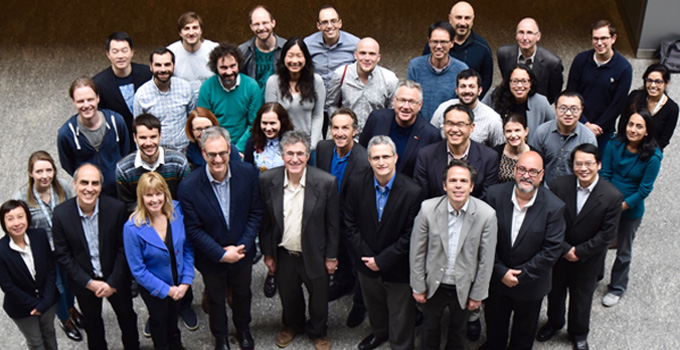
On April 13, researchers from around the world gathered at the MaRS Centre in Toronto to get a sneak peek at the findings from the Pan-Cancer Analysis of Whole Genomes (PCAWG) project. PCAWG is an ambitious international effort to comprehensively understand the non-protein coding elements of the genome, which make up 97 per cent of the genome but have been little studied in the context of cancer.
Approximately 700 researchers worked on PCAWG and were organized into 17 different working groups with each focusing on a different aspect of tumour biology. They uniformly reanalyzed more than 2,500 whole genome tumours and normal pairs from the International Cancer Genome Consortium and The Cancer Genome Atlas. The results of this research will be published later this year in multiple papers across a number of major journals.
“It was great to meet with many PCAWG team members and others to review how the project has helped to improve our understanding of tumour biology and discuss how these new insights can be used to improve cancer prevention and care,” says Dr. Lincoln Stein, Head of Adaptive Oncology at OICR and a member of the PCAWG Steering Committee. “I look forward to the publication of our findings and am excited to see how the broader cancer research community builds upon our work.”
